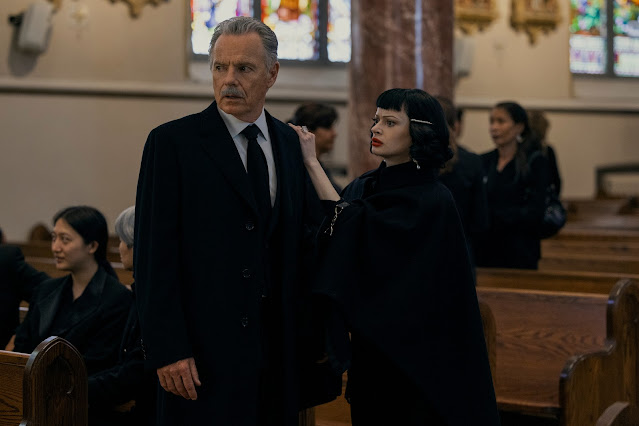I can’t believe I even considered doubting Mike Flanagan. He’s been my favorite horror director for years, mastering the genre both in film and on television, surpassing my expectations in following up The Shining with 2019’s Doctor Sleep and revolutionizing single-location cringe-inducing body horror with Gerald’s Game.
His new endeavor, The Fall of the House of Usher, is a miniseries of eight stellar episodes that chart the steadily building saga of a dynasty stained by blood, betrayal, and fear, combining the stories of Edgar Allan Poe into a wonderfully genre-mashed horror tale. Based on the opening, I wasn’t initially sold on the series, but it very quickly won me over, rapidly becoming my favorite limited series of the year.
 |
| Image courtesy of Netflix |
Fall of the House of Usher doesn’t just adapt Edgar Allan Poe’s titular short story; it incorporates a multitude of his works, spanning stories, poems, and novels, wrapping them up into one grand story to conclude Flanagan’s five-year deal with Netflix that has produced critically-acclaimed hit series like The Haunting of Hill House and Midnight Mass. I recognized some and learned about others from post-series research, and it only gave me more respect for Flanagan’s skill. There are scenes where characters simply quote Poe’s poems, and they never feel out of place; in a gothic world of unnatural happenings, they’re right at home.
For a filmmaker who has lived and breathed horror for years, it’s refreshing to see that with Fall of the House of Usher, Flanagan proves that he can successfully tackle a variety of genres, all of which trace back to his roots. The series updates the classic tale for the modern era and embraces the horrors of reality; instead of ambiguously wealthy people who live in a mansion in the middle of nowhere, the Ushers gained their wealth from the pain and suffering of others through the opioid epidemic, which was largely fueled by the meteoric rise of their (fictional) drug Ligadone.
 |
| Image courtesy of Netflix |
 |
| Image courtesy of Netflix |
The Fall of the House of Usher is not just a macabre tale that weaves a horror story from the best literature of the 19th century, it’s also a brutal condemnation of the for-profit pharmaceutical industry. The series is critical without feeling overwrought, and carries a strong moral core, using some of the most despicable characters you have ever seen to deliver its point bluntly and effectively. If not for Midnight Mass, it would certainly be my favorite Flanagan (and Netflix) series to date.
The Fall of the House of Usher is streaming on Netflix.

No comments:
Post a Comment